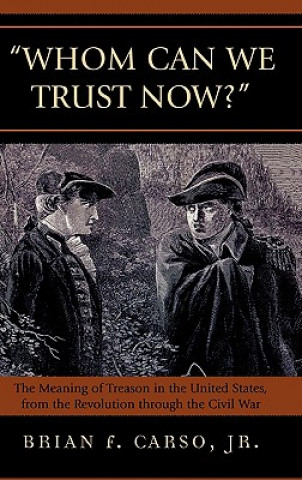
Kód: 04902336
Whom Can We Trust Now?
Autor Brian F. Carso
For several hours in August 1787, the delegates to the Philadelphia Convention debated the two sentences defining treason that would serve as the only criminal law in the U.S. Constitution. As storied and controversial as this anc ... celý popis
- Jazyk:
 Angličtina
Angličtina - Vazba: Pevná
- Počet stran: 262
Nakladatelství: Lexington Books, 2006
- Více informací o knize

Mohlo by se vám také líbit
-

World's Best Sailboats
1609 Kč -
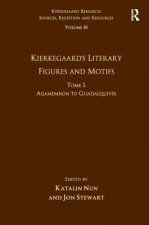
Volume 16, Tome I: Kierkegaard's Literary Figures and Motifs
5172 Kč -
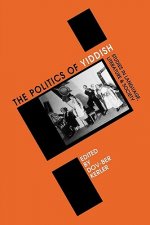
Politics of Yiddish
1675 Kč -

Aromatherapy
512 Kč -
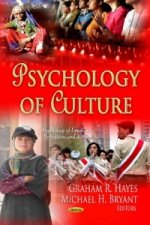
Psychology of Culture
6100 Kč -
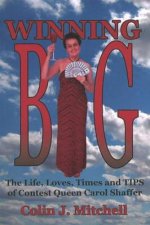
Winning Big
567 Kč -
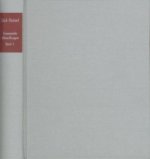
Erich Heintel: Gesammelte Abhandlungen / Band 3: Zur Theologie und Religionsphilosophie I
1723 Kč
Darujte tuto knihu ještě dnes
- Objednejte knihu a zvolte Zaslat jako dárek.
- Obratem obdržíte darovací poukaz na knihu, který můžete ihned předat obdarovanému.
- Knihu zašleme na adresu obdarovaného, o nic se nestaráte.
Více informací o knize Whom Can We Trust Now?
Nákupem získáte 416 bodů
 Anotace knihy
Anotace knihy
For several hours in August 1787, the delegates to the Philadelphia Convention debated the two sentences defining treason that would serve as the only criminal law in the U.S. Constitution. As storied and controversial as this ancient crime was, the meaning of treason for the new democratic republic was difficult to foresee. Historian and lawyer Brian Carso demonstrates that although treason law was conflicted and awkward, the broader idea of treason gave recognizable shape to abstract ideas of loyalty, betrayal, allegiance, and political obligation in the United States. Taking an interdisciplinary approach, Carso begins by exploring the nature of loyalty and betrayal in a democratic republic, using examples ranging from Socrates in Plato's Crito to the dilemma of Robert E. Lee in 1861 and the trial of Timothy McVeigh in 1997. Turning to legal history, the study considers the historical antecedents of the Treason Clause of the U.S. Constitution and examines the utility of American treason law as it was applied in a variety of cases, most notably in the 1807 trial of Aaron Burr, in which Supreme Court Justice John Marshall used twenty-five thousand words to explicate the Treason Clause. Finding that the antinomies of treason law in a democratic republic make successful prosecutions against treason nearly impossible, Carso turns to the political, intellectual, and cultural realms of civic life to identify and to explain the broader meaning of treason. The study investigates the perpetual condemnation of Benedict Arnold and the many ways treason animated civic discourse during the Civil war. By examining editorials, sermons, histories, orations, art, literature, and political cartoons, Carso identifies how the meaning of treason engaged the public imagination in a variety of compelling forms and instructed citizens on loyalty and betrayal outside the courtroom as much as within it.
 Parametry knihy
Parametry knihy
Zařazení knihy Knihy v angličtině Humanities History Regional & national history
4158 Kč
- Plný název: Whom Can We Trust Now?
- Podnázev: The Meaning of Treason in the United States, from the Revolution through the Civil War
- Autor: Brian F. Carso
- Jazyk:
 Angličtina
Angličtina - Vazba: Pevná
- Počet stran: 262
- EAN: 9780739112564
- ISBN: 0739112562
- ID: 04902336
- Nakladatelství: Lexington Books
- Hmotnost: 631 g
- Rozměry: 237 × 163 × 24 mm
- Datum vydání: 25. May 2006
Oblíbené z jiného soudku
-

Hundred Years' War on Palestine
338 Kč -

Ethnic Cleansing of Palestine
357 Kč -

History of Japan
405 Kč -

Ten Myths About Israel
336 Kč -

Strange Death of Europe
410 Kč -

Decline and Fall of the Roman Empire
195 Kč -

Secret History
303 Kč -

God's Playground A History of Poland
1700 Kč -

Mayflower
385 Kč -

How to be a Victorian
357 Kč -

Plantagenets
331 Kč -

General's Son
429 Kč -

Iran: A Very Short Introduction
225 Kč -

Temples of Karnak
3798 Kč -

Cuneiform
276 Kč -

Twenty Years A-Growing
250 Kč -

History of Witchcraft in England from 1558 to 1718
453 Kč -

China in Africa
894 Kč -

Islandman
250 Kč -

Bohemian Paris
414 Kč -

Alexiad
423 Kč -

Lancaster And York
388 Kč -

Inside Hitler's Greece
513 Kč -

Modern France: A Very Short Introduction
233 Kč -

Diana: Her True Story - In Her Own Words
306 Kč -

The Fourth Turning
433 Kč -

The Oxford History of Ancient Egypt
384 Kč -

Churchill: The Power of Words
410 Kč -

Palestine
534 Kč -

Korean History in Maps
706 Kč -

Great Gatsby (Wisehouse Classics Edition)
405 Kč -

Viking Way
1144 Kč -

The Thirteenth Tribe
308 Kč -

My Promised Land
517 Kč -

Vanished Kingdoms
514 Kč -

Age Of Revolution
410 Kč -

Life and Death of Anne Boleyn
624 Kč -

Coming of the Third Reich
464 Kč -

Children of Ash and Elm
462 Kč -

Europe Between the Oceans
798 Kč -

Socialism Betrayed
475 Kč -

303 Squadron
464 Kč -

Ancient Celts, Second Edition
624 Kč -

Dancing in the Glory of Monsters
395 Kč -

Battle of Britain: Luftwaffe Blitz (Images of War)
606 Kč -

Age of Confucian Rule
851 Kč -

Beyond Band of Brothers
410 Kč -

Benjamin Franklin
410 Kč -

On China
462 Kč
Osobní odběr Praha, Brno a 12903 dalších
Copyright ©2008-24 nejlevnejsi-knihy.cz Všechna práva vyhrazenaSoukromíCookies



 Vrácení do měsíce
Vrácení do měsíce 571 999 099 (8-15.30h)
571 999 099 (8-15.30h)